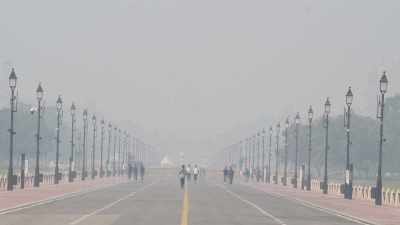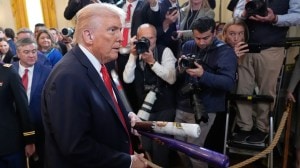Biological ‘bullet’ to block cancer growth developed
CALCUTTA, JULY 17: Imagine a biological `bullet' that zeroes in on cancer cells in different parts of the body, bombards them with radio ...

CALCUTTA, JULY 17: Imagine a biological `bullet’ that zeroes in on cancer cells in different parts of the body, bombards them with radio isotopes and prevents the cancer from spreading. Or delivers a sure-shot dose of thallium to the right spot for those suffering from heart disease?
In a departure from its role of pursuing esoteric research, the Department of Atomic Energy (DAE) is trying its hand at a business venture. In a tie-up with a Belgian firm, two premium institutes from the DAE stable, the Saha Institute of Nuclear Physics (SINP) and the Variable Energy Cyclotron Centre (VECC), have set up a multi-crore venture to produce radio isotopes for use in cancer hospitals across the country.
While treatment for patients suffering from life-endangering cancers has made incremental progress, one major problem was that healthy cells were also destroyed when the affected organ was subjected to radiation therapy.Secondly, even locating the exact position of the cancer cells required invasive techniques inconventional cancer treatment.
In treating heart disease, radioactive thallium was found to be extremely effective, but since all thallium used in the country is imported it proved to be an expensive treatment for most people. But this may soon be a thing of the past. Both cancer and heart disease patients in this country will soon have greater access to the injectible radio isotopes. `How this biological bullet works is rather simple. The isotopes are converted into a chemical compound which can be injected into the body. Once there, it reacts in those areas where you want it to,’ said Bikash Sinha, Director of both SINP and VECC.
`For example, palladium is a sure cure for prostate cancer if detected early enough,” Sinha explains. Part of the money for the Rs 42 crore company, called West Bengal Radio and Pharmaceutical Limited (WBRPL), is being put up by the DAE, matched by a similar grant by the Department of Science and Technology. Belgium is picking up a major chunk of the tab, with a Rs 31 croreinterest-free loan, which is basically the cost of the cyclotron. Not to be left out, the West Bengal government has gifted two acres of land near the VECC campus in Calcutta’s Salt Lake area.
The Belgian company, Ion Beam Applications, better known as IBA, will handle the international marketing and export of the radio isotopes, an area where understandably the DAE’s scientists feel they could do with some help.`We hope to export the radio isotopes to South East Asia, China and the Middle East. There’s a ready market for it,’ said Sinha.
Radio isotopes produced in India would be far cheaper than those available on the international market. `Right now many diagnostic centres are importing the isotopes from European countries. Apart from the high cost involved, the strength of the isotopes also comes down by the time it reaches the hospital here,’ said Rakesh Bhandari, Project Manager, of the super conducting cyclotron project.





- 01
- 02
- 03
- 04
- 05


























